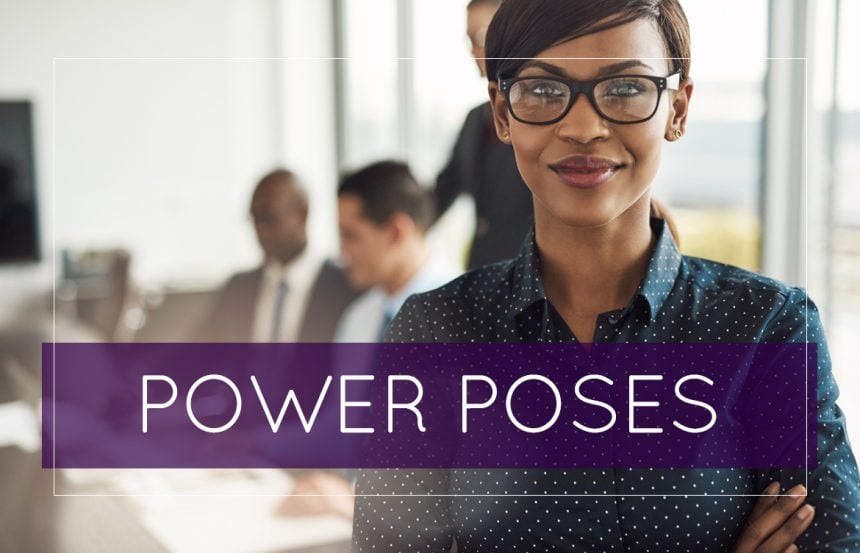
Did you ever notice how your body reacts to what’s on your mind?
Say you see someone you haven’t seen for a while – someone you really like – you might smile, look directly into their eyes, walk quickly towards them, open your arms to initiate a hug or offer an enthusiastic greeting! Or conversely, if you’re presented with challenging news you might lower your eyes, slump, sigh, shake your head or raise your arms in disbelief or frustration. It’s called “embodied cognition”, the theory that many aspects of cognition are shaped by aspects of the entire body.
Now those examples stem from a reactive perspective. Does it work the same way from a proactive perspective?
Social psychologist and scientific researcher, Amy Cuddy, received well over 39 million views of her Ted Talk on what she called, “Power Poses” striking a stance that instilled a sense of personal power.
Cuddy’s initial research suggested that beyond instilling confidence, power poses actually have an effect on hormones, the latter of which met with mixed reviews upon other studies not achieving consistent, similar results.
Knowing that the mind and body are in constant conversation and that subconsciously our body gives clues to how we’re reacting to news – good or bad – can planting ourselves, shoulders back with a smile on our face actually initiate positive feelings?
Aha! ~ Choose confidence with your entire being
“What you do with your body has a profound effect on the way you think about yourself and interact with others.” ~ Mark Bowden, Body Language Expert
It goes back to the “pain/pleasure principle” or as Amy Cuddy describes it using “approach/avoidance”, that generally all of our thoughts, feelings, and actions are motivated to move towards pleasure or away from pain. “When our approach system is activated, we are happier, more optimistic, more confident, more creative, more likely to take action, more likely to seek rewards and opportunities, more physically energetic and less inhibited, among other things. Activation of the inhibition systems leads to the opposite effects.”
The keyword is “activated” and Neuroscientist Peter Stick adds, “How we move, think and feel have an impact on the stress response through real neural connections.”
Aha! emphasized: it’s not only thoughts-feelings-actions in that order that create new connections. You can boost your confidence by reversing the sequence starting with your favorite, expansive pose.
Chin up!
Succeed Deliberately!
https://www.proctorgallagherinstitute.com/41141/power-poses#comments




Комментариев нет:
Отправить комментарий